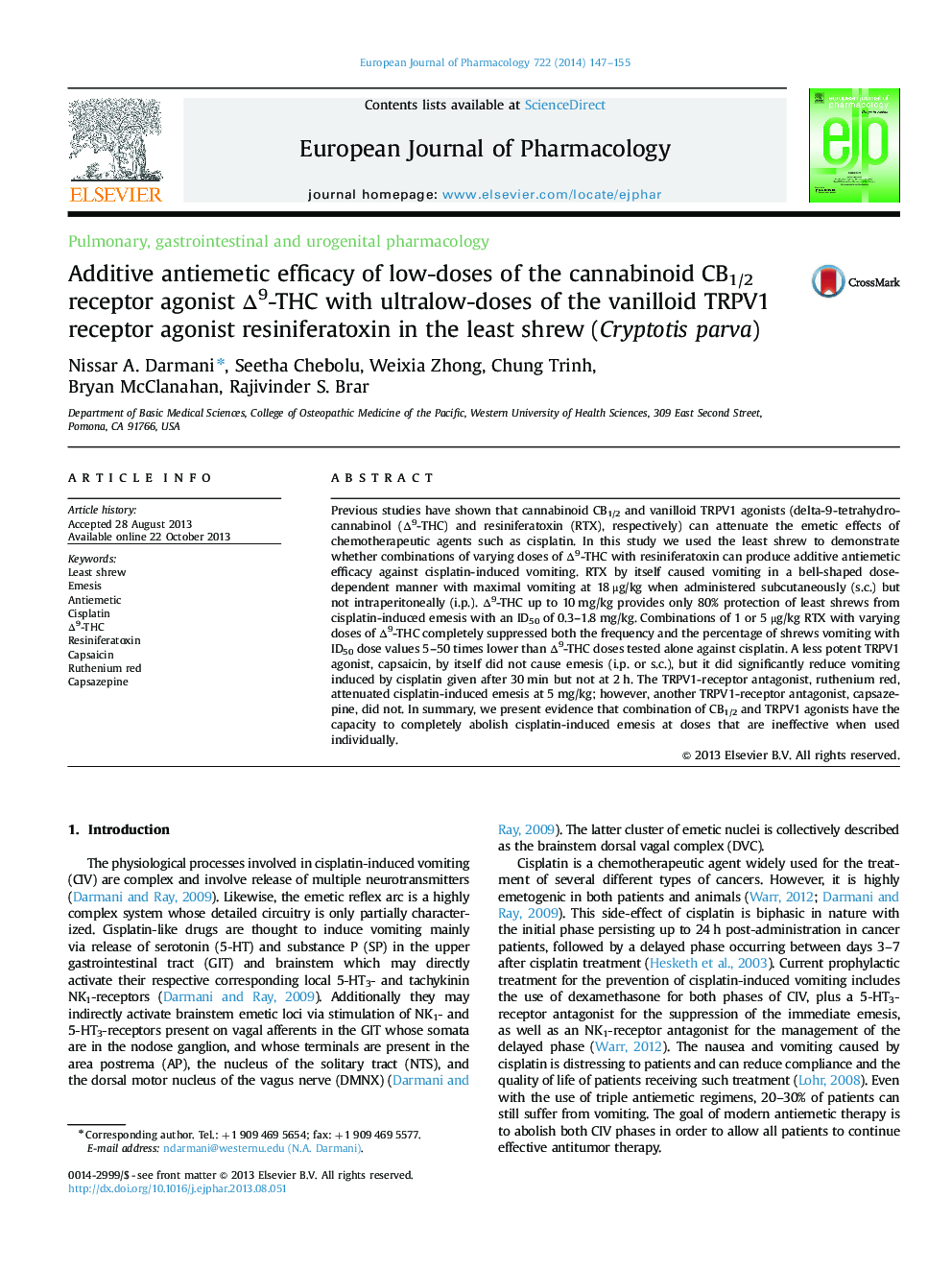| Article ID | Journal | Published Year | Pages | File Type |
|---|---|---|---|---|
| 2531875 | European Journal of Pharmacology | 2014 | 9 Pages |
Previous studies have shown that cannabinoid CB1/2 and vanilloid TRPV1 agonists (delta-9-tetrahydrocannabinol (Δ9-THC) and resiniferatoxin (RTX), respectively) can attenuate the emetic effects of chemotherapeutic agents such as cisplatin. In this study we used the least shrew to demonstrate whether combinations of varying doses of Δ9-THC with resiniferatoxin can produce additive antiemetic efficacy against cisplatin-induced vomiting. RTX by itself caused vomiting in a bell-shaped dose-dependent manner with maximal vomiting at 18 μg/kg when administered subcutaneously (s.c.) but not intraperitoneally (i.p.). Δ9-THC up to 10 mg/kg provides only 80% protection of least shrews from cisplatin-induced emesis with an ID50 of 0.3–1.8 mg/kg. Combinations of 1 or 5 μg/kg RTX with varying doses of Δ9-THC completely suppressed both the frequency and the percentage of shrews vomiting with ID50 dose values 5–50 times lower than Δ9-THC doses tested alone against cisplatin. A less potent TRPV1 agonist, capsaicin, by itself did not cause emesis (i.p. or s.c.), but it did significantly reduce vomiting induced by cisplatin given after 30 min but not at 2 h. The TRPV1-receptor antagonist, ruthenium red, attenuated cisplatin-induced emesis at 5 mg/kg; however, another TRPV1-receptor antagonist, capsazepine, did not. In summary, we present evidence that combination of CB1/2 and TRPV1 agonists have the capacity to completely abolish cisplatin-induced emesis at doses that are ineffective when used individually.
Graphical abstractFigure optionsDownload full-size imageDownload high-quality image (152 K)Download as PowerPoint slide
